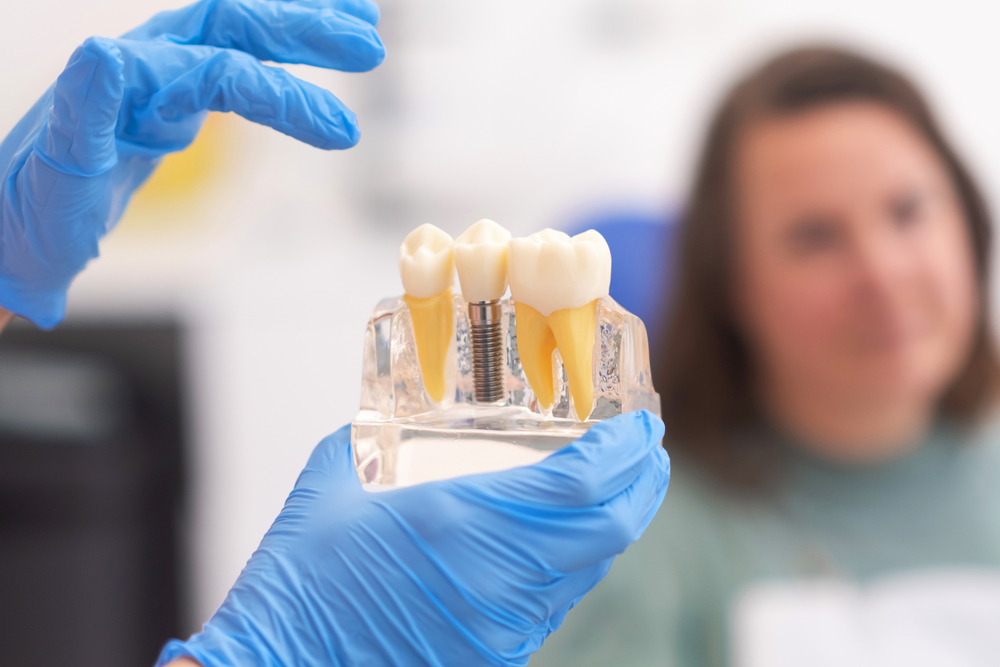Dental implants have become the gold standard for replacing missing teeth. Known for their durability, natural appearance, and ability to restore function, dental implants can last a lifetime—provided they are cared for properly. Just like natural teeth, implants require daily attention and mindful habits to ensure their longevity. In this article, we’ll guide you through essential maintenance tips and what to expect—especially when it comes to eating after the procedure.
Understanding the Basics of Dental Implant Care
Understanding the basics of dental implant care is essential for anyone considering or currently living with dental implants. These advanced restorations are designed to mimic the function and appearance of natural teeth, but they still require proper maintenance to ensure long-term success. Unlike natural teeth, dental implants are not susceptible to cavities, but they can still be affected by gum disease and inflammation if not cared for correctly. Daily brushing, flossing, and regular dental checkups are vital in protecting your dental implants and the surrounding tissues. By following a consistent oral hygiene routine, you can help ensure your dental implants remain stable, functional, and aesthetically pleasing for years to come.
A dental implant is a titanium post surgically embedded into the jawbone to replace the root of a missing tooth. After healing, a crown is attached to the post, creating a natural-looking tooth that functions much like the real thing.
While implants are immune to cavities, they are not immune to other oral health issues such as peri-implantitis—an inflammatory condition that affects the soft and hard tissues around an implant. This makes maintenance not just important, but essential.
1. Establish a Thorough Daily Oral Hygiene Routine
Although dental implants themselves do not decay, the surrounding gums and bone structure can still be affected by plaque buildup. To keep your implants healthy:
- Brush at least twice a day using a soft-bristle toothbrush and non-abrasive toothpaste.
- Clean around the implant crown carefully to avoid scratching the surface.
- Use an interdental brush or floss specifically designed for implants to clean between teeth and implants.
- Consider an antimicrobial mouth rinse to reduce bacterial load.
Regular and consistent oral hygiene helps prevent inflammation and gum disease, the leading causes of implant failure.
2. Pay Close Attention to Eating After the Procedure
Eating after the procedure is one of the most crucial aspects of early dental implant care. Immediately following surgery, your mouth will be tender and possibly swollen, so your diet needs to support healing.
For the first 24–48 hours:
- Stick to soft foods such as yogurt, mashed potatoes, smoothies, applesauce, and soups (at room temperature).
- Avoid hot, spicy, or acidic foods, which can irritate the surgical site.
- Do not use straws, as the suction can disrupt healing.
In the first few weeks post-surgery:
- Slowly reintroduce firmer foods as tolerated.
- Chew on the opposite side of your mouth if possible.
- Avoid crunchy, hard, or sticky foods like nuts, chips, or caramel.
Long term, once healing is complete and your permanent crown is in place, you can return to a normal diet. However, it’s still wise to avoid chewing on ice, biting your nails, or using your teeth as tools—these habits can damage both natural teeth and implants.
3. Keep Up With Regular Dental Visits
Visiting your dentist at least twice a year is essential, even if your implants feel perfectly fine. During these checkups:
- Your dentist will examine the implant site to ensure healthy gum tissue and proper bone integration.
- Professional cleanings will remove plaque and tartar that are difficult to eliminate at home.
- X-rays may be taken periodically to check for any signs of bone loss or implant shifting.
If any early signs of trouble appear, your dentist can address them before they become serious.
4. Quit Smoking and Limit Alcohol
Smoking is one of the biggest risk factors for dental implant failure. It restricts blood flow to the gums, slows healing, and increases the risk of infection. If you’re considering dental implants or already have them, quitting smoking is one of the best things you can do to protect your investment.
Excessive alcohol consumption can also impede healing and increase the risk of inflammation around implants. Moderation is key.
5. Use Protective Gear If Needed
If you grind your teeth at night—a condition known as bruxism—talk to your dentist about getting a night guard. Grinding can put undue stress on both natural teeth and implants, potentially leading to damage or loosening of the crown.
Similarly, if you play contact sports, wearing a mouthguard can protect your dental implants and natural teeth from trauma.
6. Monitor for Warning Signs
Even with excellent care, it’s important to stay vigilant. Contact your dentist if you notice:
- Redness, swelling, or bleeding around the implant site
- Persistent pain or discomfort
- The implant feeling loose or shifting
- Bad breath or an unpleasant taste that doesn’t go away
Catching problems early can make the difference between a simple fix and a complex procedure.
Dental implants are an exceptional solution for restoring your smile and bite. However, their success depends largely on how well you care for them. From diligent daily cleaning to being mindful of what you eat—especially in the critical days following surgery—small habits can lead to big rewards.
Eating after the procedure requires patience and careful choices, but with time, your implants will become a comfortable and permanent part of your lifestyle. With the right maintenance and professional care, your implants can deliver a lifetime of confident smiles.

